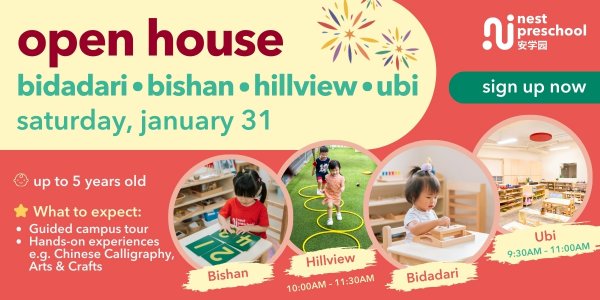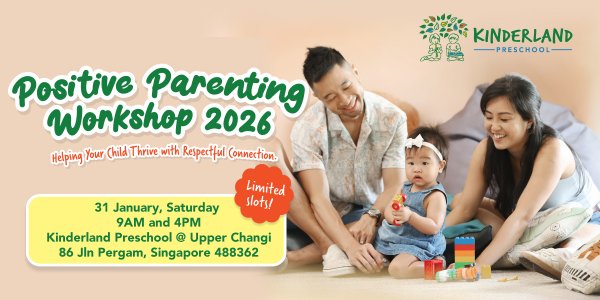Guess What, Mum? I’ve Just Discovered the World!
This article is part of a mini-series by Dr Henry Toi (Affiliate Director of the Institute for the Habits of Mind) who will share and explain the ways you can guide your children to cultivating good, lifelong habits.
“Don’t touch that, it’s dirty!”
Ruby was pretty upset that Jenny, her 4-year-old was running her fingers all over the Little Prince statue at the exhibition. No doubt that it was a beautiful piece of art. You could see his soft, golden hair glittering playfully under the warm spotlights, and the gorgeous fabric of his tunic rustling gently in the wind. But Jenny was not supposed to reach out and touch it, who knew how many dirty hands had already come into contact with the statue.
Looking down at her daughter, Ruby sternly told Jenny to clean her hands with the wet wipes she carried with her everywhere. Disappointed that she wasn’t able to explore further, Jenny slinked away and followed behind her Mum as they continued to walk around the exhibition. Is this how Ruby should have reacted? Read on to find out.
Making Sense of Things
Like little Jenny, nearly everyone enjoys exploring and experiencing the world through the senses. Be it going to a concert or the movies (sight and sound), going for a massage (touch and smell), or eating a good meal (almost all the senses), they are all, quite literally, music to the ears. In much the same way, the process of learning for children and also adults is more enjoyable and memorable when it involves multiple senses. Studies have confirmed that we learn better and remember more when we engage more senses in learning something.

The Brain Behind It
The brain is the ultimate ‘reductionist’. It reduces the world to its elementary parts consisting of sight, sound, smell, touch and taste. Information is then received by the brain through various sensory pathways, i.e. the gustatory, olfactory, tactile, kinaesthetic, auditory and visual systems. In order to learn and solve problems, it is important to keep these channels of information open and well-maintained. To do this is an exercise in keen and mindful observation.
There is this amusing story about a medical professor of a well-respected university, who was known to begin each semester with a very important lesson on observation. At the start of that lesson, he would instruct his students to follow his lead and do a medical self-examination. First, he collected his own urine sample and poured it into a lab beaker. Then he stuck one finger into the beaker of urine, and licked it clean. More observant students would notice that he was only pretending to lick the finger – his tongue did not actually touch his fingertip. They wouldn’t have to taste their own urine for lunch, but there would always be some unlucky ones who did.

It’s Ok to Be Touchy
Let’s return to the episode at the beginning, what do you think is the lesson learned here for little Jenny, who was chastised for touching the statue because her fingers might get dirty? If such a warning is repeated over time, Jenny may refrain from having any tactile experience as she considers touching something unfamiliar as unhygienic or unacceptable behaviour. She may cease to observe and understand the world using her sense of touch altogether.
It may sound a little extreme, but many parents do relate to Ruby’s perspective.
After which, Ruby could then educate her daughter on the importance of good hygiene,“Jenny, look at your hands, are they dirty? What should we do with dirty hands?” Helping Jenny to wipe her hands at this point will prove to be a more effective lesson than berating her.
Tips for Home
But the lesson doesn’t have to end there. Continue to excite your child’s senses even back home.
Take a simple baking experiment for example. Try doing it together and allow your child to rub the powdery flour between the thumb and forefingers before you start kneading the dough. Ask her to feel the changing consistency, hard at first and slippery soft once you put your weight down with the ball of your hand. Hear that knocking sound when you whisk the eggs in a bowl, and breathe in the delicious fragrance wafting through the kitchen as the bread rises and turns golden. Imagine how good that freshly baked bread is going to taste. What a treat to the senses!

Depending on your child’s reading and comprehension ability, you may want to consider adding a dash of thrilling suspense to your bedtime repertoire. Oftentimes, detective literature highlights acute observation skills as the key to solving complex crimes and mysteries.
You can take your pick from the classic Adventures of Sherlock Holmes (the abridged version for your little tots), Enid Blyton’s beloved Secret Seven and Famous Five series or more recent publications like Mariella Mystery: The Ghostly Guinea Pig by Kate Pankhurst.
Just remember that children are only just beginning to discover the world through direct, concrete experiences. It’s up to you to provide them with the right learning materials and environment.

Mulberry Learning Center
The 1st Preschool in Singapore to incorporate Habits of Mind.
A Proud Partner of The Institute for the Habits of Mind (USA)






Give your Opinions